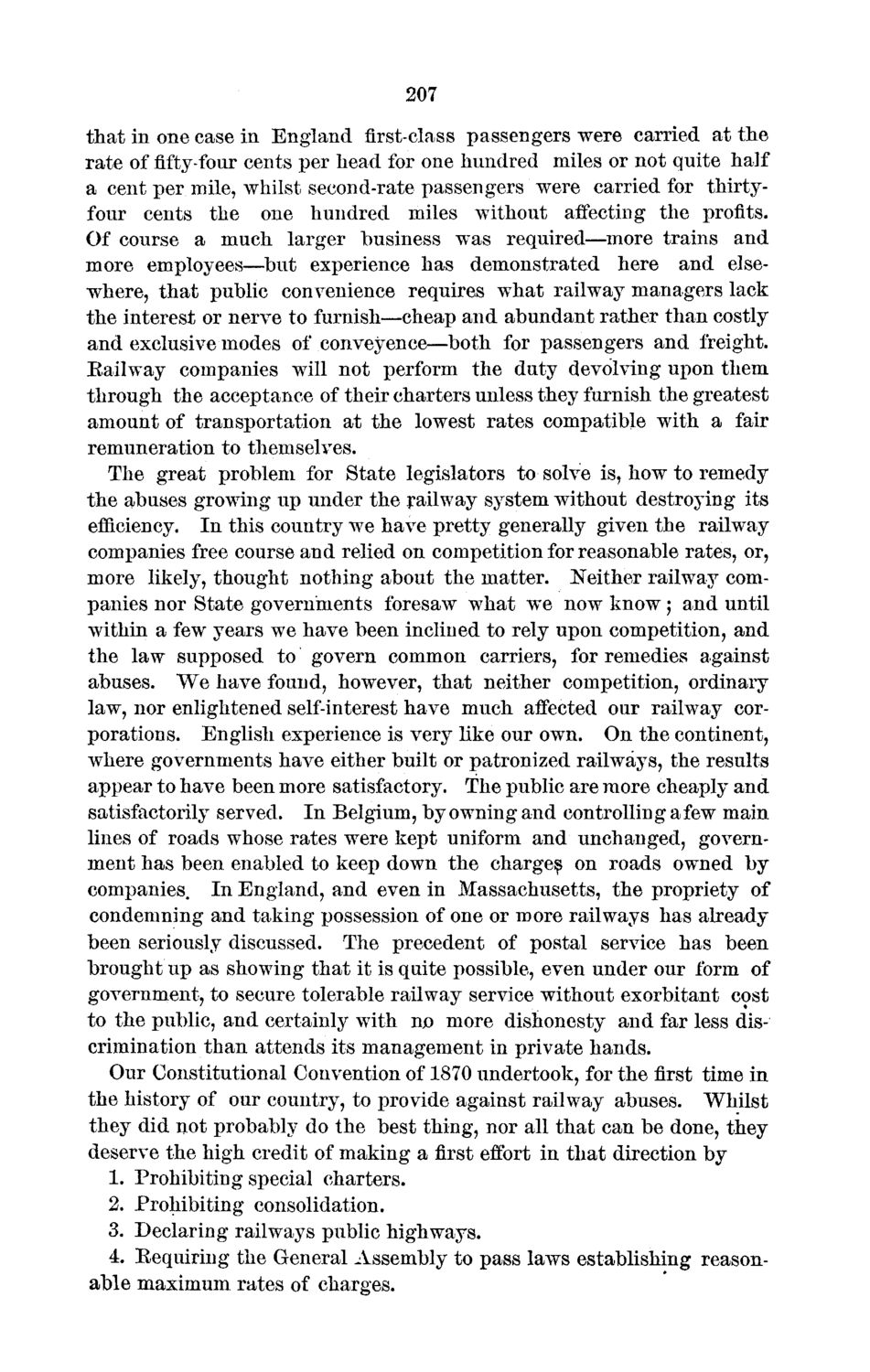| |
| |
Caption: Board of Trustees Minutes - 1872
This is a reduced-resolution page image for fast online browsing.

EXTRACTED TEXT FROM PAGE:
207 that in one case in England first-class passengers were carried at the rate of fifty-four cents per head for one hundred miles or not quite half a cent per mile, whilst second-rate passengers were carried for thirtyfour cents the one hundred miles without affecting the profits. Of course a much larger business was required—more trains and more employees—but experience has demonstrated here and elsewhere, that public convenience requires what railway managers lack the interest or nerve to furnish—cheap and abundant rather than costly and exclusive modes of conveyence—both for passengers and freight. Kailway companies wTill not perform the duty devolving upon them through the acceptance of their charters unless they furnish the greatest amount of transportation at the lowest rates compatible with a fair remuneration to themselves. The great problem for State legislators to solve is, how to remedy the abuses growing up under the railway system without destroying its efficiency. In this country we have pretty generally given the railway companies free course and relied on competition for reasonable rates, or, more likely, thought nothing about the matter. Neither railway companies nor State governments foresaw what we now know 5 and until within a few years we have been inclined to rely upon competition, and the law supposed to govern common carriers, for remedies against abuses. We have found, however, that neither competition, ordinary law, nor enlightened self-interest have much affected our railway corporations. English experience is very like our own. On the continent, where governments have either built or patronized railways, the results appear to have been more satisfactory. The public are more cheaply and satisfactorily served. In Belgium, by owning and controlling a few main lines of roads whose rates were kept uniform and unchanged, government has been enabled to keep down the charge^ on roads owned by companies. In England, and even in Massachusetts, the propriety of condemning and taking possession of one or more railways has already been seriously discussed. The precedent of postal service has been brought up as showing that it is quite possible, even under our form of government, to secure tolerable railway service without exorbitant cost to the public, and certainly with no more dishonesty and far less discrimination than attends its management in private hands. Our Constitutional Convention of 1870 undertook, for the first time in the history of our country, to provide against railway abuses. Whilst they did not probably do the best thing, nor all that can be done, they deserve the high credit of making a first effort in that direction by 1. Prohibiting special charters. 2. Prohibiting consolidation. 3. Declaring railways public highways. 4. Eequiring the General Assembly to pass laws establishing reasonable maximum rates of charges.
| |